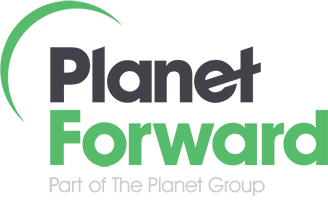Imagine you’re buying a house. You walk through it a few times, drive through the neighborhood on several occasions. Research it online. And when you do put the offer in and it’s accepted, you hire a home inspector to go through the house with a fine-toothed comb.
What if you could do this with a new job?
Maybe you can’t hire the employment version of a home inspector, but you can do careful preparation before an engineering interview to ensure you have the right questions to ask to evaluate the opportunity fully. The more prepared you are, the easier and smoother the discussion will go and the more information both sides will get to determine if it’s a good fit.
DO YOUR RESEARCH
Learn the company’s products and services and their position in the marketplace. Find out which projects they’re working on. See what contracts they are working on or what public bids they may have been a part of.
Read up on the health of the business. Have they achieved recognition for their size, growth, or workplace initiatives? Look up the executives and key management personnel, too. It’s essential to know the details of the industry and the company so that during your engineering interview you can relate your experience and skills to the role they are looking to fill.
If you know who you will be meeting with by name, do a little research to see if you know some of the same people. This is helpful for a couple of reasons. One, it’s to find common ground and may be a good icebreaker. But two, you don’t want to step on any toes. You don’t want to say something negative about the connection and then find out that they’re old college friends!
KNOW YOUR STORY
In a field like engineering, where it’s easy to just state the facts of your experience, you really need to bring your resume to life. On your resume, and during your engineering interview, be prepared to provide a concise narrative that explains how you’ve progressed from job to job and why. For instance, if you’ve had a lot of movement in your career, it’s okay. That’s not a deal breaker. But you do need to practice the story that explains why you followed that path.
You also want to keep it positive. You want the interviewers to walk away thinking, “This is a talented person. I’d like them to work here.” So, avoid any negativity about your previous employers. You’ve got to spin everything in a positive light when you’re interviewing, because that’s who somebody wants to hire. If you left because of a bad situation, be prepared to talk about why you left in a more positive way.
Spend some time going through your resume to refresh your memory. Especially if you’ve got years of experience, it’s easy to forget some of the details from previous jobs. Go through your resume and for each position come up with two good examples that relate to the job for which you’re interviewing and tie your experience to the open position as much as possible.
PREPARE QUESTIONS IN ADVANCE
In getting ready for your engineering interview, write down a list of questions you’d like to ask, especially those that generate discussion and help you find out more about what the interviewer is looking for. Consider asking why the job is open or what the biggest challenges will be in the first three to six months.
Also, don’t be hesitant to have an active conversation. Don’t just answer their questions – after providing examples of your experience, ask about the employers’ most recent projects and what they would expect from you in this role. In this way, if you didn’t give the most relevant example, you can adapt and give a more pertinent one from your history. The idea is to get more detail and then as you learn, constantly fit yourself to what they are looking for.
This also creates a dialogue, rather than a question-and-answer session. Ultimately, what you want in the interview is a really good conversation. If you’re the one doing all the talking, you’re not getting enough information to know if what you’re giving is what the employer is looking for. As a candidate, aim for a balance of talk time. For instance, maybe 60 percent candidate and 40 percent interviewer.
End the engineering interview by asking if the interviewer has any more questions. For example, “Are there any questions about my background that you feel we didn’t cover? Or is there anything that you think I’d be doing in this job that we didn’t discuss?” This makes sure that you resolve any lingering doubts or red flags the interviewer might have.
PEN AND PAPER AT THE READY
Perhaps it’s old-fashioned but bring a notepad with you to the interview – even a video interview. Then when the interviewer asks if you have any questions, you’re prepared. If you’re in a video interview it’s even more important to do this. When people hear typing, they might wonder if you’re truly paying attention – or answering email.
Taking notes also helps you summarize at the end of the interview. For instance, you might say, “I feel great about this interview. I feel like we went through A, B, and C. And, as I mentioned, in my past experiences as _[job]__, I’ve done this. I feel like we’re very in-line and I feel excited about this opportunity and my discussion with you.”
START YOUR ENGINES
You’ve done your homework and it’s the day of your engineering interview. Now the preparation is about focus and intention. For an in-person meeting, the interview starts when you leave your home. That’s where it truly starts, not when you arrive. You might even say it begins when you get dressed for the interview.
A good rule of thumb is to arrive at least 15 – 20 minutes before the interview. However, don’t walk through the door until ten minutes before. Once you walk into the lobby, consider yourself “onstage.” Employees walking by will notice you. The receptionist will notice you. Hey, you may even be on CCTV. Behave as you would in the interview. Turn off your phone or put it on silent. Go over your notes, be patient and stay focused.
Want to get a latte before the interview? Be on your best behavior even in the coffee shop next door. Again, you never know who is within earshot, sitting next to you or standing in line behind you. This heightened awareness begins when you leave the house and ends when you get home. Then you can kick off your shoes and debrief with a friend.
Much of the advice above certainly applies to virtual interviews as well. But there are a few more details. Test the technology you’ll use for the interview, including both the meeting software and your set-up at home, before joining the meeting. Is your camera positioned well for an interview? What’s in the background (or on your virtual background)? Do you have a quiet space where you won’t be interrupted? Are you prepared for a video interview? You could even do a dry run with your recruiter.
You’ve Got This
Candidates often think of an engineering interview as a nerve-wracking test where you’re trying to desperately guess the correct answer. But a good interview is a two-way street, a conversation where both sides learn about the other. Of course, you want to show off your best side and give the “right” answers. However, you’re also there to find out if the job and company are a good fit for you. Preparation is the key to accomplishing this.
Photo credit: Adobe Stock

